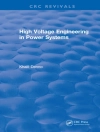This book discusses effective and alternative uses for natural gas (NG) and highlights the utilization of NG in the field of methane activation and chemical production. It details the techniques used during the reforming process of petrochemical and bio-derived fuels and it presents cutting-edge research that describes the utilization of NG that enables it to be more cost-effective and eliminate the expensive greenhouse gas emitting process of hydrogen production. The book addresses three major topics: NG use in upstream heavy oil and bitumen upgrading, NG and its use in downstream oil refining through co-aromatization of various feeds in the petrochemical industry, and NG use in the upgrading of bio-derived fuels and discusses alternative uses of NG. In-depth chapters demonstrate uses for NG beyond heating homes, through catalysis and in-situ hydrogen donation, and its potential applications for the petrochemical and biofuel industries.
Tabella dei contenuti
Chapter 1. Methane Sources and Current Uses.- Chapter 2. Introducing Methane Activation.- Chapter 3. Direct Systems: Methane Dehydroaromatization (MDA) and the Oxidative Coupling of Methane (OCM).- Chapter 4. The Cross-Coupling of Methane with Non-oxidative Hydrocarbons.- Chapter 5. Catalytic Upgrading of Heavy Oil Resources under Methane.- Chapter 6. Non-thermal plasma (NTP) assisted catalytic conversion of methane and other hydrocarbons.- Chapter 7. Biomass valorization under methane environment.- Chapter 8. Mechanism studies on biofuel conversion under methane environment.
Circa l’autore
Dr. Hua Song completed his BEng in chemical engineering at the Northwestern Polytechnic University in Xi’an (China) in 2001, followed by an MEng in chemical engineering from Tsinghua University, Beijing in 2004. He holds a Ph D in heterogeneous catalysis in chemical engineering from The Ohio State University (2009). Currently, Dr. Song is the associate professor and principal investigator for the Green Catalysis Research Group at the Schulich School of Engineering. Prior to becoming an assistant professor at the University of Calgary in 2012, he was a research chemical engineer II at RTI international between 2011 and 2012, and a lead research engineer at the Research Center of Babcock & Wilcox between 2009 and 2010.
Jack Jarvis started his career in the UK as a Chemistry BSc graduate of Loughborough University. He then operated as a carbon capture chemist, working on a pilot plant utilizing amine solvent technology, which held significant interest from both RWE and Shell Cansolv. Soon after this, Jack recognized the potential in natural gas, especially in North America, and so pursued further studies in the NG field in Canada. For the last 4 years, Jack has dedicated his research towards methane utilization and its coaromatization with light hydrocarbons under the supervision of Dr. Hua Song and GCRG, achieving a MSc at the University of Calgary and currently in the 3rd year of his Ph D studies.
Shijun Meng holds a bachelor’s degree in chemical engineering at Tsinghua University (China) in 2017. Currently, he is a 4th year Ph.D. candidate at the University of Calgary. His doctoral research is about non-thermal plasma assisted catalytic conversion of hydrocarbons. His articles have been published on Applied Catalysis B: Environmental and The Journal of Physical Chemistry Letters.
Dr. Hao Xu got his Bachelor’s degree (2014) and Ph D degree (2019) in Department of Chemical Engineering, Tsinghua University, Beijing, China. His research project at Tsinghua University was carbon-based non-mercury metal catalyst for acetylene hydrochlorination. He also worked as a visiting scholar at Rice University, Houston, Texas, USA in 2017. His topic there was rhodium-based catalysts for aqueous nitrite remediation. He is now a postdoctoral associate under the supervision of Prof. Hua Song in Department of Chemical and Petroleum Engineering, University of Calgary, Calgary, Alberta, Canada. His research is focused on catalytic heavy oil upgrading using natural gas for clean energy conversion. He has the experience on the study of heterogenous catalysis for over 8 years.
Dr. Zhaofei Li obtained his B.Sc. and Ph.D. in Chemistry from Peking University, China, in 2000 and 2005, respectively. He worked as a postdoctoral researcher, research associate and assistant professor at Ruhr-University Bochum, Tohoku University and Kyoto University before he joined Petrochemical research institute of Petro China as a senior engineer. Currently, he is a research associate in University of Calgary working on heavy oil upgrading and natural gas activation. He has the experience on the study of heterogenous catalysis for over 15 years.
Dr. Wenping Li obtained her B.Sc. in Applied Chemistry from Beijing University of Chemical Technology, China, in 2012 and her Ph.D. in Physical Chemistry from Dalian Institute of Chemical Physics (DICP), Chinese Academy of Sciences, in 2019. Prior to joining in the University of Calgary as a postdoctoral associate, she carried out her postdoctoral research at the University of Alberta.












